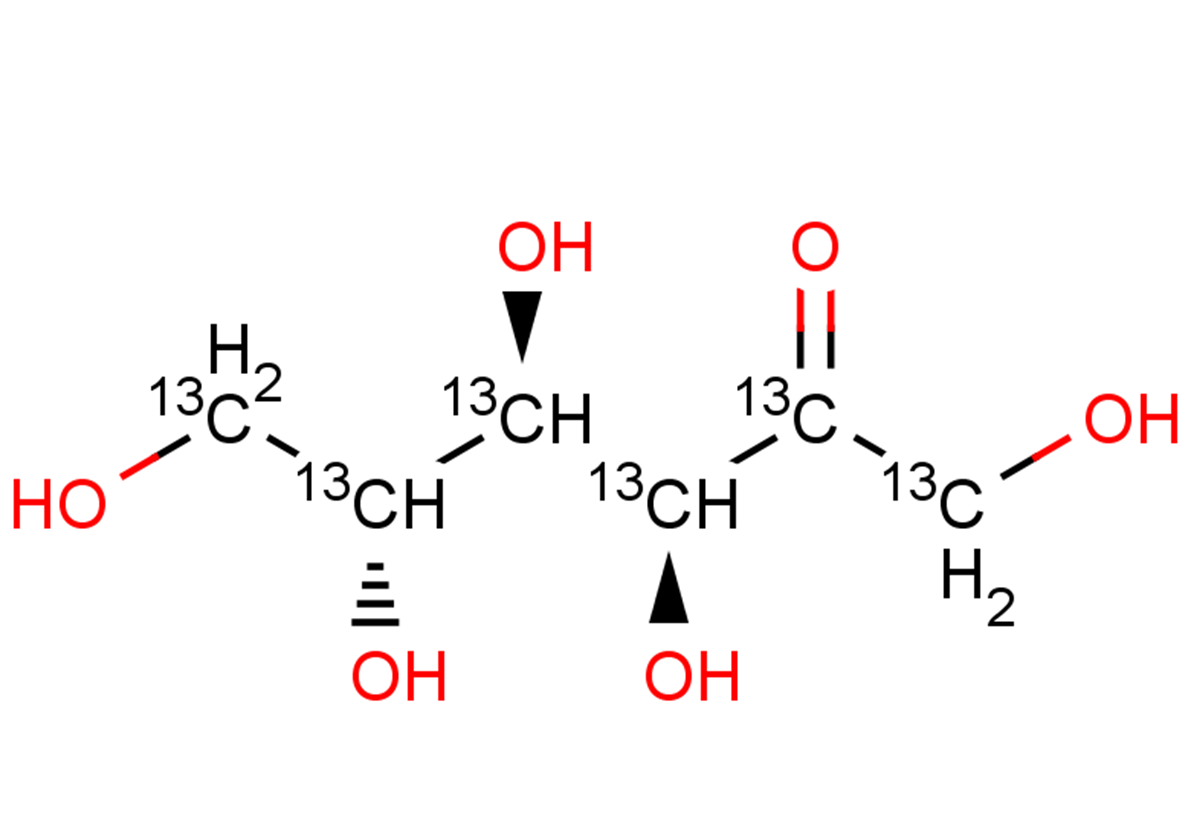D-Fructose-13C6
| Code | Size | Price |
|---|
| TAR-T35618-5mg | 5mg | £230.00 | |||||||||||||||||||||||||||||||||||||||||||||||||||||||||||||||||||||||||||||||||||||||||||||||||
| Special offer! Add £1 to your order to get a TargetMol CCK-8 Kit. Read more here. | |||||||||||||||||||||||||||||||||||||||||||||||||||||||||||||||||||||||||||||||||||||||||||||||||||
Quantity:
Prices exclude any Taxes / VAT
Overview
Regulatory Status: RUO
Shipping:
cool pack
Storage:
-20℃
Images
Documents
Further Information
Bioactivity:
D-Fructose-13C6is intended for use as an internal standard for the quantification of D-fructose by GC- or LC-MS. D-Fructose is a ubiquitous monosaccharide and is derived, in addition to glucose, from the breakdown of sucrose by sucrase in the intestine.1It is a precursor in the biosynthesis of D-fructose-1,6-bisphosphate , which is an intermediate in the production of D-glucoseviagluconeogenesis. Deficiencies in the enzymes that metabolize D-fructose are inborn errors of metabolism that range from benign, for fructokinase deficiency, to severe, for hereditary fructose intolerance, if D-fructose, sucrose, and sorbitol are not eliminated from the diet.2Increased consumption of D-fructose is associated with obesity, dyslipidemia, and impaired insulin sensitivity.3
CAS:
201595-65-5
Formula:
C6H10O6
Molecular Weight:
184.094
Purity:
0.98
SMILES:
0
References
Russak EM, et al. Impact of Deuterium Substitution on the Pharmacokinetics of Pharmaceuticals. Ann Pharmacother. 2019;53(2):211-216.
Chen, M., and Whistler, R.L.Metabolism of D-fructoseAdv. Carbohydr. Chem. Biochem.34265-343(1977)
Tran, C.Inborn errors of fructose metabolism. What can we learn from them?Nutrients9(4)E356(2017)
Tappy, L., and L?, K.-A.Metabolic effects of fructose and the worldwide increase in obesityPhysiol. Rev.90(1)23-46(2010)



